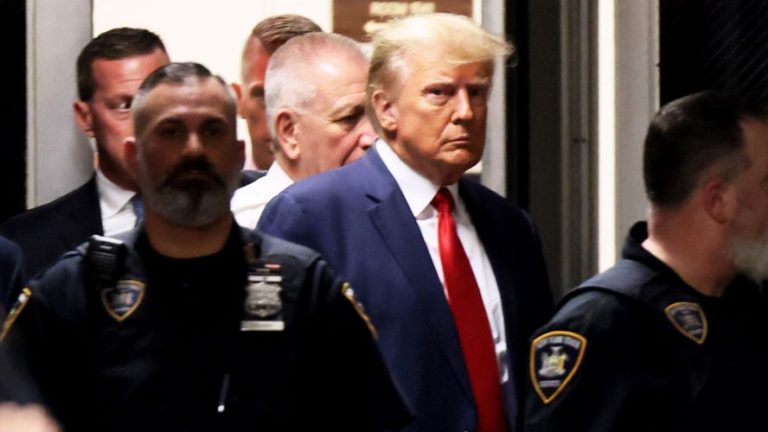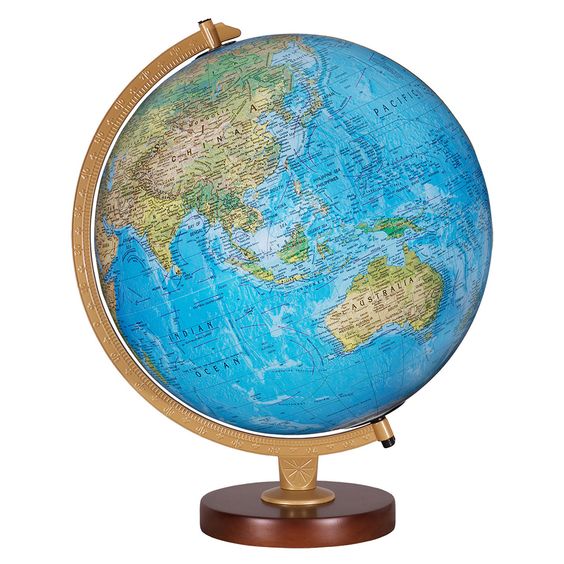
America’s wheels of justice grind exceedingly slowly. Therefore it is unlikely there will be a legal result before the 2024 election
By Tom Arms
Donald Trump will get his wish. He desperately tried to air his election fraud claim in court. He made over 50 attempts to do so, including two to bring it before the Supreme Court.
But Trump’s problem is that the wrong person – or entity– is charged with lying. It is not the swamp, deep state, establishment elite or the blob that is being hauled before the court accused of porky pies in pursuit of naked power. It is Donald Trump.
The cornerstone of the case of Special Counsel Jack Smith and the Department of Justice is that Donald Trump lied when he claimed electoral fraud. That he—and his co-conspirators– knew that he lied and that he used the lie in the criminal pursuit of subverting the US constitution, the electoral laws and the proceedings of Congress.
If he didn’t lie. If Donald Trump is indeed the victim of an elaborate conspiracy involving the Department of Justice, his own Vice President, over 50 courts and tens of thousands of individual vote tellers, then Jack Smith’s case collapses into an ignominious legal heap.
Trump’s lawyers hope they have a constitutional ace up their sleeves–the right to free speech as enshrined in the First Amendment. Freedom of speech protects the right to lie—up to a point.
Bill Barr, Trump’s Attorney General, was prominent among those insisting that the ex-president accept the election results and attacked him for not doing so. This week, the country’s former top lawyer, dismissed the First Amendment defense. He said: “They (the Department of Justice) are not attacking his First Amendment rights. He can say whatever he wants. He can even tell people that the election was stolen when he knew better. But that does not protect you from entering into a conspiracy to defraud the United States.”
It is the conspiracy angle that Jack Smith is focused on. And key to conspiracy argument is Trump’s unsuccessful efforts to persuade Vice President Mike Pence to throw out the Electoral College votes at the ceremonial vote count on January 6. Pence said this week that he had “done his duty” by not bowing to Trump’s demands. The former Vice President is mentioned 100 times in the 46-page indictment.
Trump’s lawyers may also use the presidential immunity clause. He was president when he attempted to compel Pence to overturn the vote and when he urged the crowd to “march on the Capitol.” But after January 20, 2021 he was an ex-president who for the next 17 months tried to persuade states to de-certify the results.
A major player in this process was his lawyer John Eastman who is named as a co-conspirator but so far is un-indicted (other named co-conspirators include Rudy Giuliani, Sidney Powell and Jeffrey Clark). It was Eastman who came up with the plan for Pence to de-certify the Electoral College vote. He has been described as “the serpent in the ear of the president.”
Oddly enough, the bad advice that Eastman gave Trump could save the former president. Under the terms of attorney-client privilege, the client (in this case Donald Trump) can pass liability for a crime to the lawyer who wrongly advised them. Say some.
The Supreme Court case Clark v. the United States has ruled otherwise. The Justices wrote: “A client who consults an attorney for advice that will serve him in the commission of a fraud will have no help from the law. He must let the truth be told.”
Odds are that the Supreme Court will have the opportunity to rule again on the limitations of attorney-client privilege, presidential immunity and free speech. If Trump loses in the lower courts he will appeal and appeal all the way to the top of the legal tree.
America’s wheels of justice grind exceedingly slowly. Therefore it is unlikely there will be a legal result before the 2024 election. America’s voters must assume the role of their country’s jurors.
 World Review
World Review
The Ukraine war has resulted in the world facing a shortage of every grain product and the prospect of widespread starvation in the developing world and spiraling food prices in the developed.
Shortages of corn and wheat—Ukraine and Russia’s two biggest grain exports—have increased demand for that other major grain product—rice. This has led India to ban exports of non-basmati rice “to ensure adequate domestic availability at reasonable prices.” India exports 40 percent of the world’s rice.
To compound the problem other major rice producing countries—Thailand, Pakistan and Vietnam—have all suffered bad harvests this year due to deteriorating weather conditions.
But back to Ukraine where Vladimir Putin has ended the Turkish-brokered deal to allow grain ships past the Russian blockade of Ukraine’s Black Sea ports. He followed that up with a devastating drone attack on Izmail which handles about a quarter of Ukraine’s grain exports. An estimated 40,000 metric tons of grain bound for Africa, China and Israel was destroyed and the port has been closed indefinitely. Since withdrawing from the grain deal on 27 July, Russia has destroyed an estimated 200,000 metric tons of grain as well as civilian ships, port facilities and grain storage siloes.
It should also be noted that Ukraine’s Izmail is at the mouth of the Danube and on the opposite bank is NATO member Romania.
***
Vladimir Putin has weaponised food. He has created a worldwide shortage and is now using access to Russian-produced grain to blackmail/bribe selected countries.
This was obvious at the recent Russia-Africa Summit in St Petersburg where he promised free grain to carefully selected African countries. Burkina Faso, Zimbabwe, Mali, Eritrea and the Central African Republic have all been rewarded for their support at the UN and links with the Wagner Group.
The summit, however, was not the big success Putin hoped for. The last such gathering was in 2019 when 45 African leaders turned up in Sochi. This time only 27 made the trip north to Russia’s Baltic port.
The drop in numbers was largely due to Putin’s failure to deliver on his promises. In 2019 Russia promised to quadruple direct investment in Africa. But since then it has dropped by two thirds and now represents only one percent of the total inflow of Sub-Saharan Africa’s capital investment.
Weapons and the ruthless expertise of the Wagner Group are now Russia’s chief contributions to Africa. Dictators in a swathe that follows the 10th Parallel across the Sahel from Sudan on the Red Sea to Guinea Bissau on the Atlantic are being propped up by the Wagner Group.
Yevgeny Prigozhin—head of the Wagner Group—led an armed mutiny against Russian defense chiefs last month. Putin branded him a “back-stabbing traitor.” But the Wagner chief appears to have been quickly rehabilitated as he was photographed in St Petersburg glad-handing African leaders. Putin may have decided to remove his troublesome “chef” from the domestic scene by further delegating to him Russian activities in Africa.
***
Niger appears to be the latest target of Russia’s Wagner Group. Prigozhin has welcomed the overthrow of democratically elected President Mohamed Bazoun by General Abdourahamannane Tchiani and offered Tchiani and his military junta Wagner support.
This is a major blow to the West on several fronts. For a start, Niger is a major producer of uranium ore which is needed to fuel nuclear reactors. France, in particular is heavily dependent on Nigerien uranium as nuclear power accounts for 62.7 percent of French electricity production.
The French have 1,500 troops in Niger based mainly at their airfield outside the capital Niamey. America has another 1,000 troops in Niger and neighboring Chad. Their presence is seen as vital in the battle against Jihadists in the Sahel and West Africa and the support of democratic interests. Niger and President Bazoun are seen as important bulwarks in both areas.
As of this writing, President Bazoun and his family are being held captive in the presidential palace. On Thursday the Washington Post published an article by him in which called for American support to overturn the coup and warned that the coup would lead to a strong Russian influence in Niger.
The US, EU, UK, France, and OAU have all condemned the coup and cut off aid and investment. They have also evacuated citizens. The French, American, Nigerian and Togolese ambassadors have been ordered out of the country by the new military government. The junta has also cancelled a series of military agreements with France and welcomed the involvement of Prigozhin’s Wager mercenaries.
President Emmanuel Macron has warned General Tchiani “should anyone attack French nationals, diplomats, military and/or French interests, they will see France respond in an immediate and intractable manner.”
Ideally an intervention to reverse the coup will come from African countries. The Economic Community of West Africa States (ECOWAS) is considering just that. It has warned that the 15-member state could “as a last resort” intervene with its military arm, The Economic Community of West African States Monitoring Group (ECOMOG).
Since it was formed in 1990, ECOMOG has successfully intervened in West African states to overturn coups. Countries affected are Liberia (twice), Mali, Sierra Leone, Guinea Bissau and Gambia. The problem is that some of the ECOWAS membership—especially Guinea Bissau and Mali—support the coup leaders. They in turn are supported by the Wagner Group.
War, poverty and climate change are creating the conditions for coups in African countries such as Niger. In the past four years the number of people in Sub-Saharan African living in extreme poverty (defined as having an income of $2.25 a day or less) has increased from 150,000 to 420,000.
Britain has not helped matters. A Foreign Office report this week revealed that the conservative government’s cut in foreign aid from .07 percent of GDP to .05 percent is resulting in thousands of deaths in Africa and the Middle East.
The UK was never the world’s biggest aid donor. That title belonged to America. But it was the third largest and the Department for International Development (now subsumed into the Foreign Office) was highly respected around the world for its carefully-targeted value for money assistance.
One of the ancillary purposes of aid is to improve conditions in the developing world that encourage people to remain in those countries rather than risk their lives crossing the English Channel in small boats.
Ironically, the British government is taking money out of the already reduced aid budget to pay for the housing of refugees. Many of them come from countries which have suffered British aid cuts.
________________
 Tom Arms is foreign editor of Liberal Democrat Voice, author of “America Made in Britain,” “The Encyclopedia of the Cold War” and co-host of the weekly world affairs podcast “TransAtlatic Riff” which can be heard by clicking here:
Tom Arms is foreign editor of Liberal Democrat Voice, author of “America Made in Britain,” “The Encyclopedia of the Cold War” and co-host of the weekly world affairs podcast “TransAtlatic Riff” which can be heard by clicking here:
https://open.spotify.com/show/3ntjretAKNLZNFpA5ZEGDG